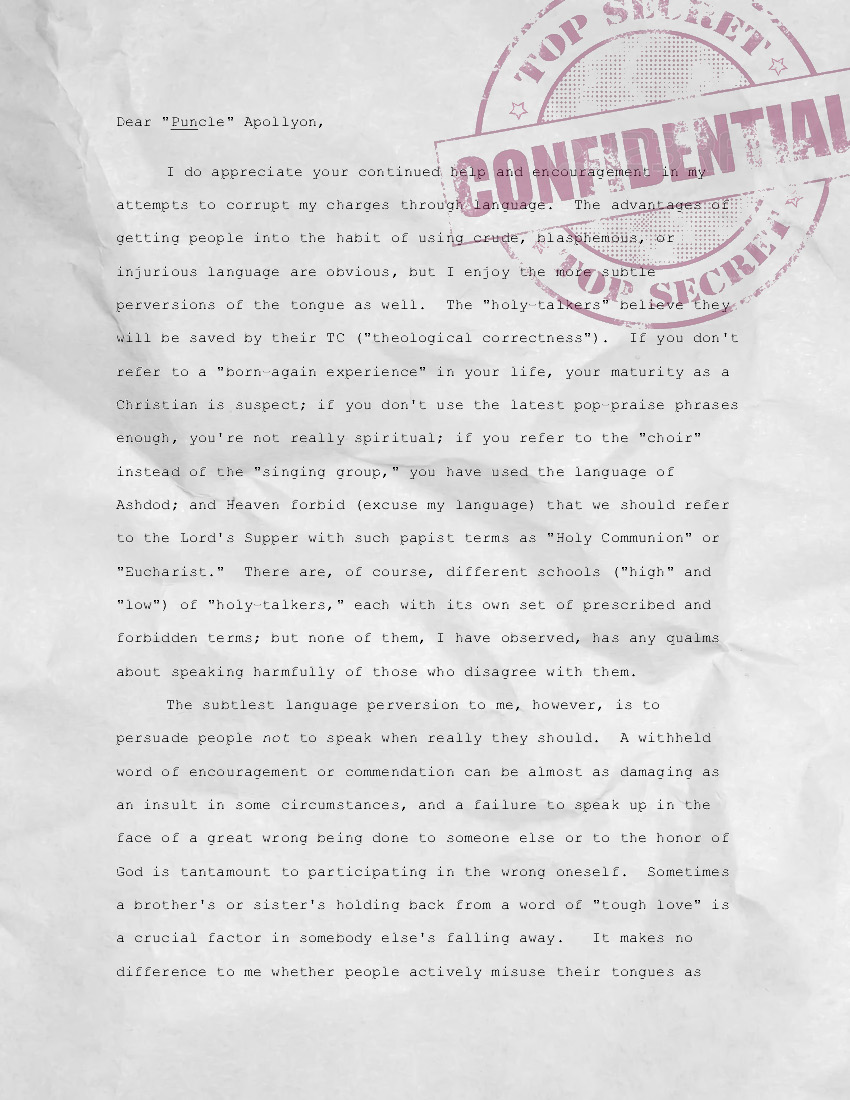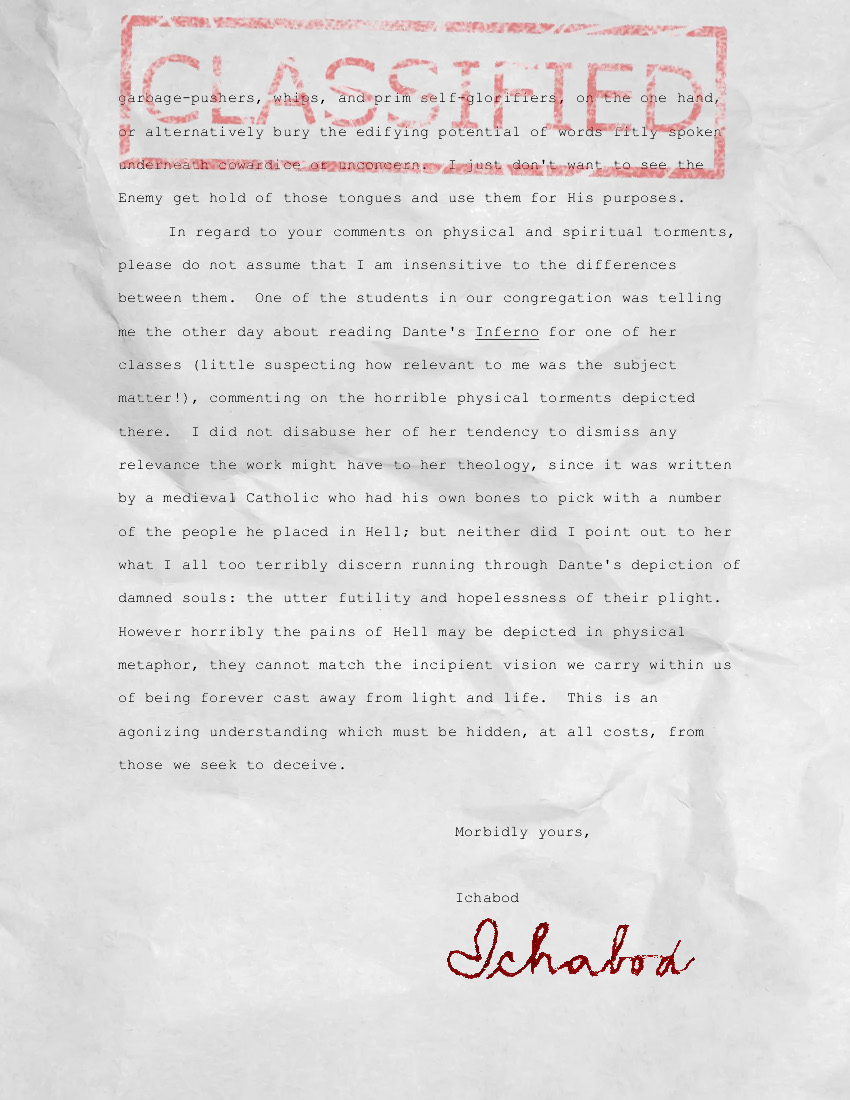Leaked Documents: Ichabod to Apollyon (Letter #19)
/Editor’s Note: Administering a website like this occasionally makes editors privy to some exotic and intriguing correspondence. In light of the particularly dark nature of some letters we have stumbled upon—we can’t reveal exactly how—we thought it our duty to share this series of missives. We appear to be in possession of only one side of the exchange of letters—from a nephew to his uncle. The nephew’s name is Ichabod and his uncle’s name Apollyon, who seems to be in an advisory position of some sort. It’s not our intent to demonize anyone by divulging what we have seen, but we feel we are performing an important service by bringing this devilishly cunning correspondence to light. Here is the nineteenth letter we were given.
Transcript:
Dear "Puncle" Apollyon,
I do appreciate your continued help and encouragement in my attempts to corrupt my charges through language. The advantages of getting people into the habit of using crude, blasphemous, or injurious language are obvious, but I enjoy the more subtle perversions of the tongue as well. The "holy-talkers" believe they will be saved by their TC ("theological correctness"). If you don't refer to a "born-again experience" in your life, your maturity as a Christian is suspect; if you don't use the latest pop-praise phrases enough, you're not really spiritual; if you refer to the "choir" instead of the "singing group," you have used the language of Ashdod; and Heaven forbid (excuse my language) that we should refer to the Lord's Supper with such papist terms as "Holy Communion" or "Eucharist." There are, of course, different schools ("high" and "low") of "holy-talkers," each with its own set of prescribed and forbidden terms; but none of them, I have observed, has any qualms about speaking harmfully of those who disagree with them.
The subtlest language perversion to me, however, is to persuade people not to speak when really they should. A withheld word of encouragement or commendation can be almost as damaging as an insult in some circumstances, and a failure to speak up in the face of a great wrong being done to someone else or to the honor of God is tantamount to participating in the wrong oneself. Sometimes a brother's or sister's holding back from a word of "tough love" is a crucial factor in somebody else's falling away. It makes no difference to me whether people actively misuse their tongues as garbage-pushers, whips, and prim self-glorifiers, on the one hand, or alternatively bury the edifying potential of words fitly spoken underneath cowardice or unconcern. I just don't want to see the Enemy get hold of those tongues and use them for His purposes.
In regard to your comments on physical and spiritual torments, please do not assume that I am insensitive to the differences between them. One of the students in our congregation was telling me the other day about reading Dante's Inferno for one of her classes (little suspecting how relevant to me was the subject matter!), commenting on the horrible physical torments depicted there. I did not disabuse her of her tendency to dismiss any relevance the work might have to her theology, since it was written by a medieval Catholic who had his own bones to pick with a number of the people he placed in Hell; but neither did I point out to her what I all too terribly discern running through Dante's depiction of damned souls: the utter futility and hopelessness of their plight. However horribly the pains of Hell may be depicted in physical metaphor, they cannot match the incipient vision we carry within us of being forever cast away from light and life. This is an agonizing understanding which must be hidden, at all costs, from those we seek to deceive.
Morbidly yours,
Ichabod
Image: "Typewriter at this awwwweome stationary shop at Brunswick" by P. Mak. CC License.



